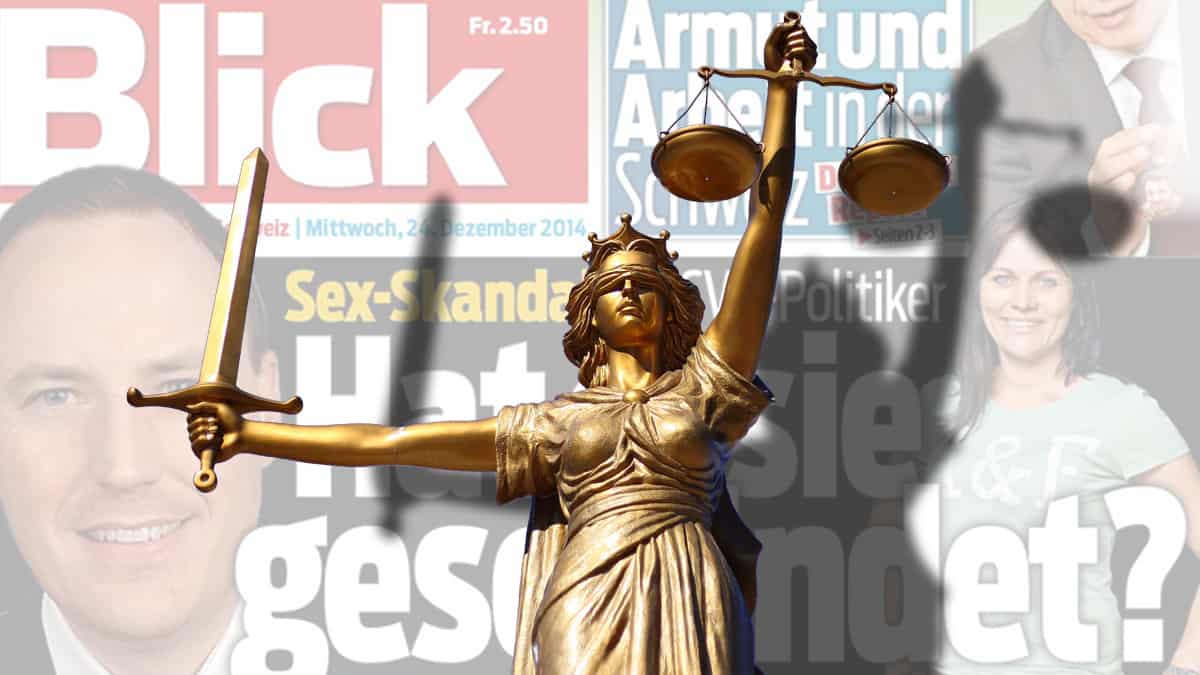Ringier and Spiess-Hegglin lawyers give each other no quarter
At the trial before the Zug Cantonal Court, Jolanda Spiess-Hegglin's lawyer and the representative of the Ringier media group lashed out on Wednesday. Spiess-Hegglin is demanding money from the publisher for alleged violation of personality rights, while Ringier denies such a claim.

After this first article, Ringier published more than 160 further reports on the subject in its print and online titles, and these lay like a shadow over Spiess-Hegglin, her lawyer said in court. Her client was considered an irritant in many circles.
Spiess-Hegglin's representative demanded that the court declare that five of these articles had violated her client's personality. As a consequence, Ringier would have to hand over the profits made from them.
No public interest
She pointed to misstatements in the articles and claimed a serious invasion of the plaintiff's privacy, for example with statements about DNA traces. There was no legitimate public interest in information, she argued.
The Ringier representative replied that the five articles cited were not infringing. They had to be seen against the background of the media reality in 2015. "And by then, this Landammann celebration had long since become the subject of public debate and no longer belonged to the intimate sphere."
It was different in the first trial, explained the media group's lawyer. Ringier's undoing at that time had been that they had been the first to write something. Subsequently, the plaintiff had also contributed everything to the fact that it had come to further stories. If there is no violation of personality, the profit issue is unnecessary.
"No disruptive effect"
Ringier had deleted the articles, the lawyer explained. These could therefore neither have a disruptive effect nor establish a state of disruption. The lawsuit should be dismissed. Despite the deletion, one has the right to defend oneself against the claims in this new lawsuit.
The deletion was a complete failure, the lawyer replied. The articles can still be found on the Internet. It was now a matter of Ringier disclosing the basis for calculating the profits. But the company refuses to do so, for example on the pretext that the information is a trade secret.
As a rule, only multimillionaires can afford to sue a media campaign, the lawyer said. Spiess Hegglin is supported by more than 1000 people, so she can afford it. The lawyer compared the campaign with the one against Carl Hirschmann. Here, Ringier had reached an out-of-court settlement.
"Dead letter"
With the proceedings in Zug, there is now a chance to establish the basis and the procedure so that the profit issue no longer remains a dead letter in media and personality law, explained the representative of Spiess-Hegglin.
According to the lawyer, the five articles resulted in proceeds of around 350,000 francs. According to Ringier, this is "far too high": the online reports would have brought in just under 2,000 francs in profit.
The lawyer called the Ringier representative's plea a "thoroughly failed real satire" and asked why Ringier CEO Marc Walder had publicly apologized to Spiess-Hegglin. The Ringier lawyer, for his part, called the real-satire remark a "rather gross impertinence.
The verdict or any further taking of evidence shall be announced in writing. (SDA)








